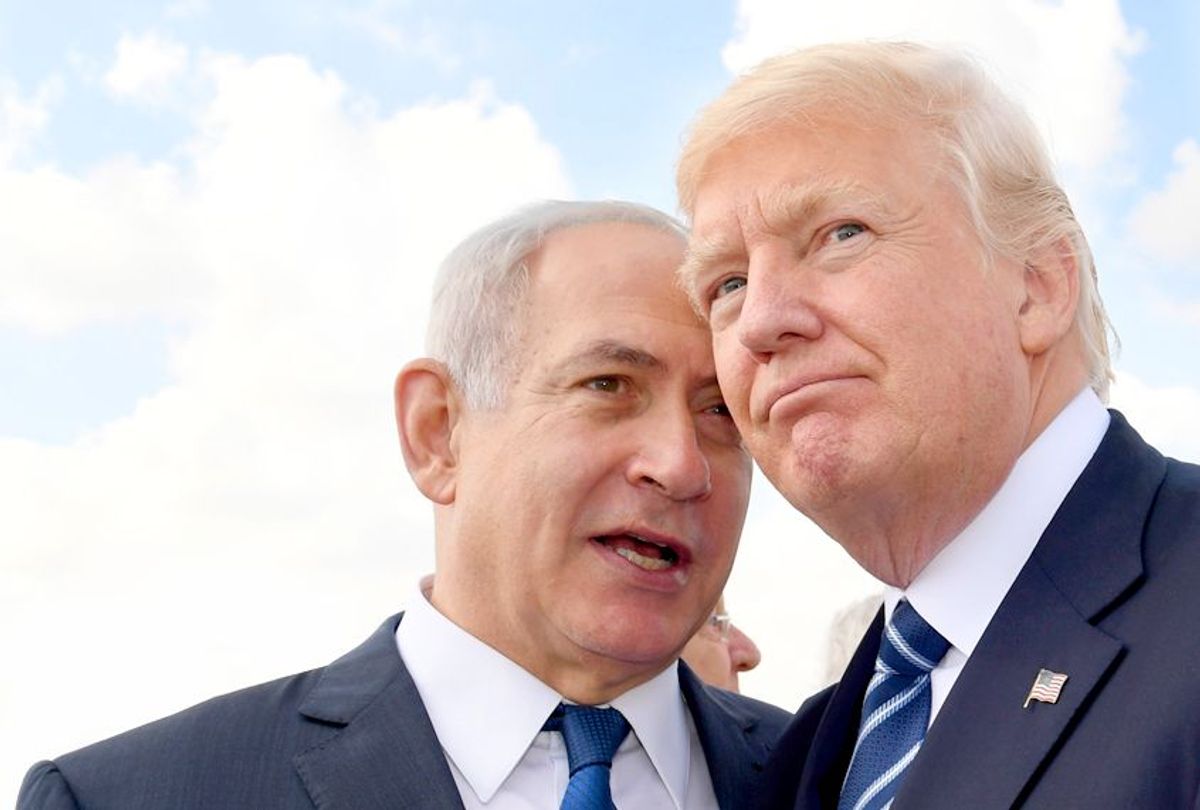While Palestinian leaders have made it clear that they don't want to consider Donald Trump's Middle East peace plan, the administration is reportedly still pushing forward.
According to a new Axios report, the White House is allegedly considering moving forward with a "peace plan" for the region even if the Palestinians are unwilling to participate and negotiate. The report comes from anonymous “U.S. senior officials” who spoke to Axios:
The U.S. officials say the administration won't impose on the Israelis or Palestinians to accept the plan, but may release it so the parties and international community can judge it at face value.
Just last week, Trump threatened to cut off U.S. aid to the Palestinians if their leaders don't agree to peace talks with Israel. In January, reports surfaced that Palestinian President Mahmoud Abbas was “angered” by a preliminary plan, parts of which were leaked one month after the White House announced it would recognize Jerusalem as the capital of Israel. In a speech to the Palestine Liberation Organization’s Central Council, Abbas called the reported peace plane “the slap in the face of the century,” according to the Jerusalem Post.
If the Axios report is true, this would further speculation that the White House might not have both parties' best interests at heart – contrary to earlier proclamations.
When Trump met with Abbas at the White House in May 2017, he vowed to end the Israeli-Palestinian conflict and to mediate an agreement that would be considerate of both parties.
Trump told reporters at the time: "I’m committed to working with Israel and the Palestinians to reach an agreement, but any agreement cannot be imposed by the United States or any other nation. The Palestinians and Israelis must work together to reach an agreement that allows both peoples to live, worship and thrive and prosper in peace. And I will do whatever is necessary to facilitate the agreement, to mediate, to arbitrate anything they’d like to do, but I would be a mediator or an arbitrator or a facilitator, and we will get this done."
Recently, Vice President Mike Pence said the White House was waiting for the Palestinians to “come back to the table.”
“The White House has been working with our partners in the region to see if we can develop a framework for peace,” Pence told Reuters in Jerusalem. “It all just depends now on when the Palestinians are going to come back to the table.”
U.S. special envoy Jason Greenblatt also reportedly met with EU ambassadors and Israeli Prime Minister Benjamin Netanyahu this week where he emphasized the importance of “continuous negotiation.” According to Axios, he didn't meet with Palestinian officials.

Shares